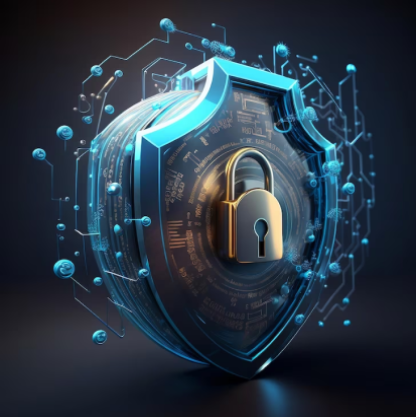
Cyber Security
In today's digital age, cybersecurity has become more critical than ever. With cyber threats evolving and becoming increasingly sophisticated, protecting your personal and business information is paramount. Whether you're an individual user, a small business owner, or part of a large organization, implementing robust cybersecurity practices is essential to safeguarding your digital assets. In this article, we'll explore some fundamental cybersecurity measures that everyone should adopt to protect themselves and their data from cyber threats.
Strong Password Management: One of the simplest yet most effective ways to enhance your cybersecurity is by using strong, unique passwords for each of your online accounts. Avoid using easily guessable passwords like "123456" or "password" and instead opt for complex combinations of letters, numbers, and symbols. Consider using a reputable password manager to securely store and generate strong passwords for all your accounts, reducing the risk of password-related breaches.
Enable Two-Factor Authentication (2FA): Two-factor authentication adds an extra layer of security to your accounts by requiring two forms of verification before granting access. Typically, this involves something you know (like a password) and something you have (like a verification code sent to your phone). Enable 2FA whenever possible, especially for sensitive accounts such as email, banking, and social media, to significantly reduce the likelihood of unauthorized access.
Keep Software and Devices Updated: Regularly updating your software, operating systems, and devices is crucial for protecting against known vulnerabilities and exploits. Enable automatic updates whenever possible to ensure that you're always running the latest security patches and bug fixes. Additionally, consider using reputable antivirus and antimalware software to further protect your devices from malicious threats.
Exercise Caution Online: Practice safe browsing habits and exercise caution when interacting with online content, links, and emails. Be wary of phishing attempts, which often masquerade as legitimate emails or websites to trick users into revealing sensitive information. Avoid clicking on suspicious links or downloading attachments from unknown sources, and verify the authenticity of websites before entering any personal or financial information.
Secure Your Wi-Fi Network: Securing your home or business Wi-Fi network is essential for preventing unauthorized access and protecting your data from interception. Change the default SSID (network name) and password of your router to unique, strong credentials, and enable encryption (such as WPA2 or WPA3) to encrypt data transmitted over the network. Additionally, consider hiding your network's SSID and implementing MAC address filtering for an extra layer of security.
Backup Your Data Regularly: Data loss can occur due to various reasons, including hardware failure, malware infections, or accidental deletion. To mitigate the impact of data loss, regularly backup your important files and documents to an external hard drive, cloud storage service, or network-attached storage (NAS) device. Ideally, automate the backup process to ensure that your data is consistently backed up and easily recoverable in the event of a disaster.
Educate Yourself and Others: Cybersecurity is a shared responsibility, and education plays a crucial role in building a cyber-aware culture. Stay informed about the latest cyber threats, trends, and best practices through reputable sources such as cybersecurity blogs, news outlets, and industry reports. Educate your family members, colleagues, and employees about cybersecurity risks and encourage them to adopt safe online behaviors and practices.
Conclusion: By implementing these essential cybersecurity practices, you can significantly reduce your risk exposure and protect yourself, your family, and your business from cyber threats. Remember that cybersecurity is an ongoing process, and staying vigilant and proactive is key to staying one step ahead of cybercriminals. By prioritizing security and investing in robust cybersecurity measures, you can enjoy the benefits of the digital world with peace of mind knowing that your data is safe and secure



